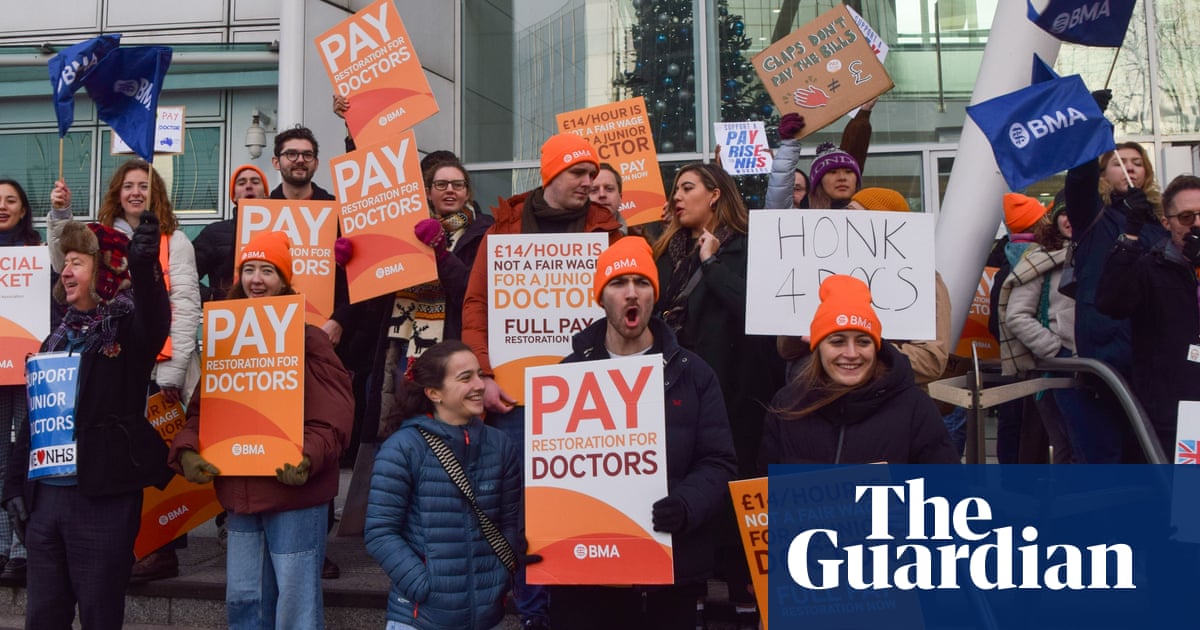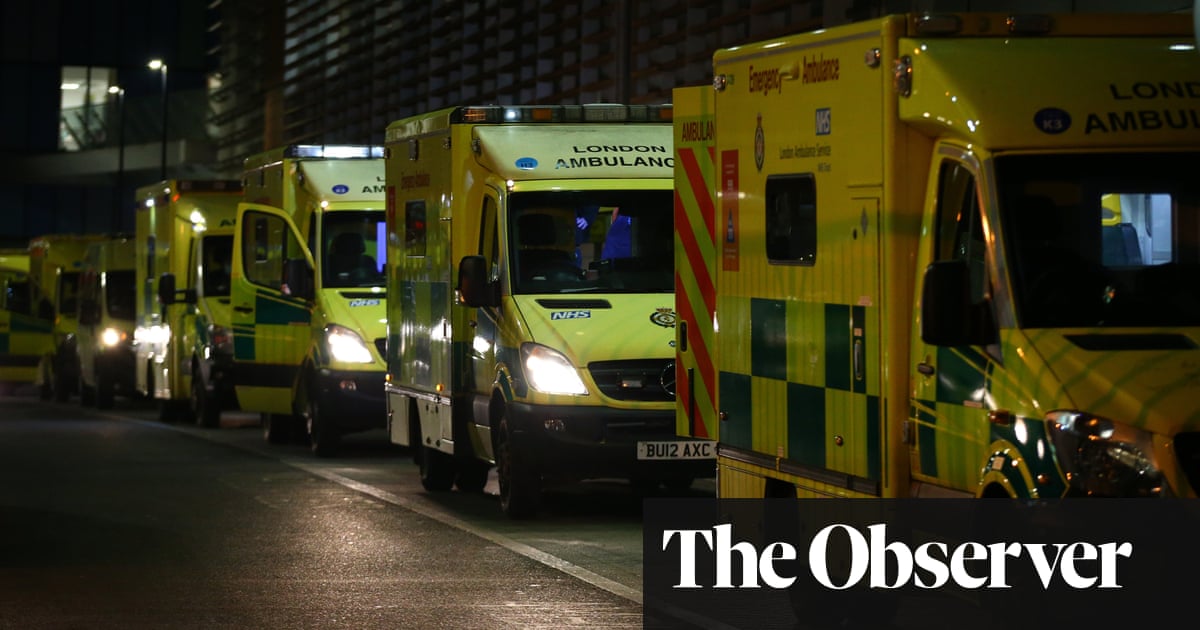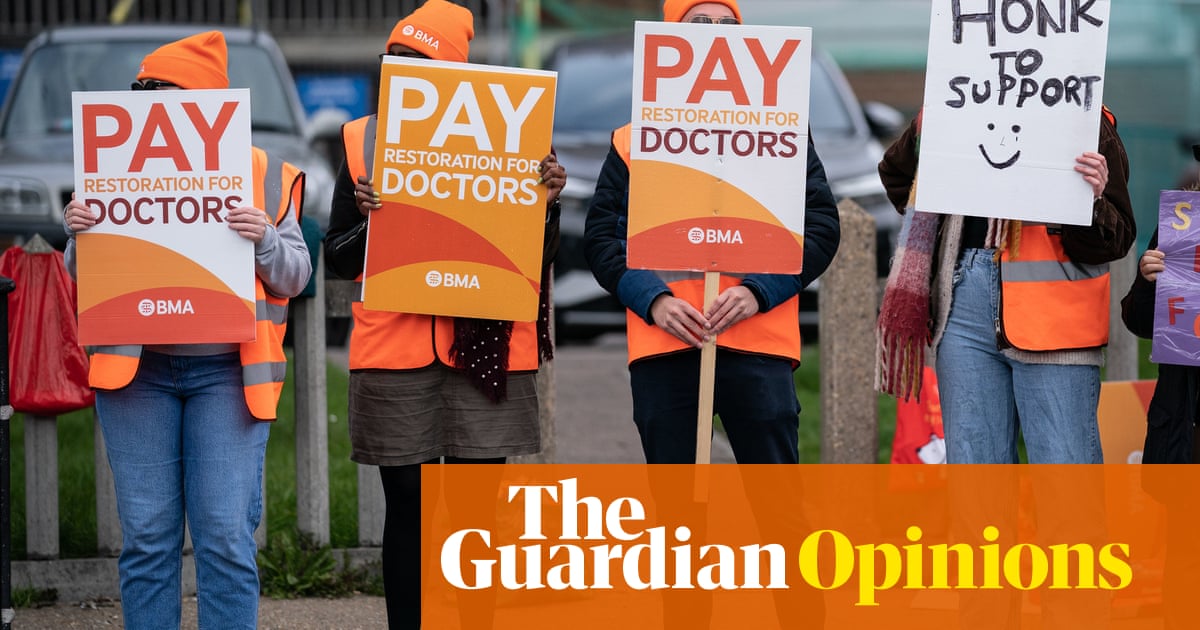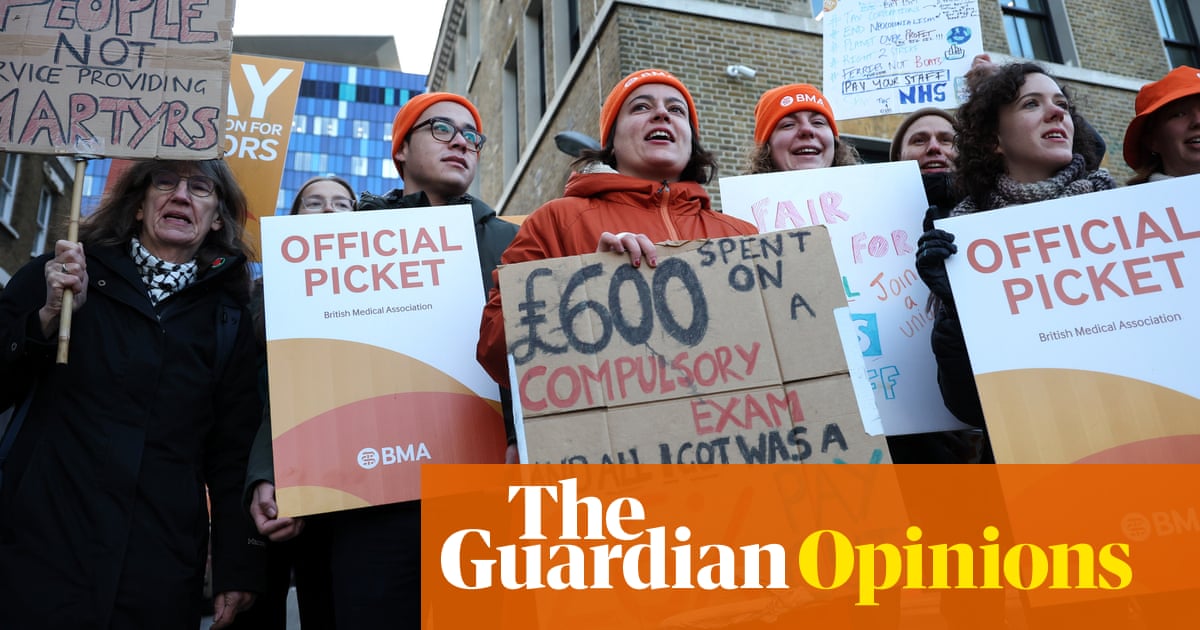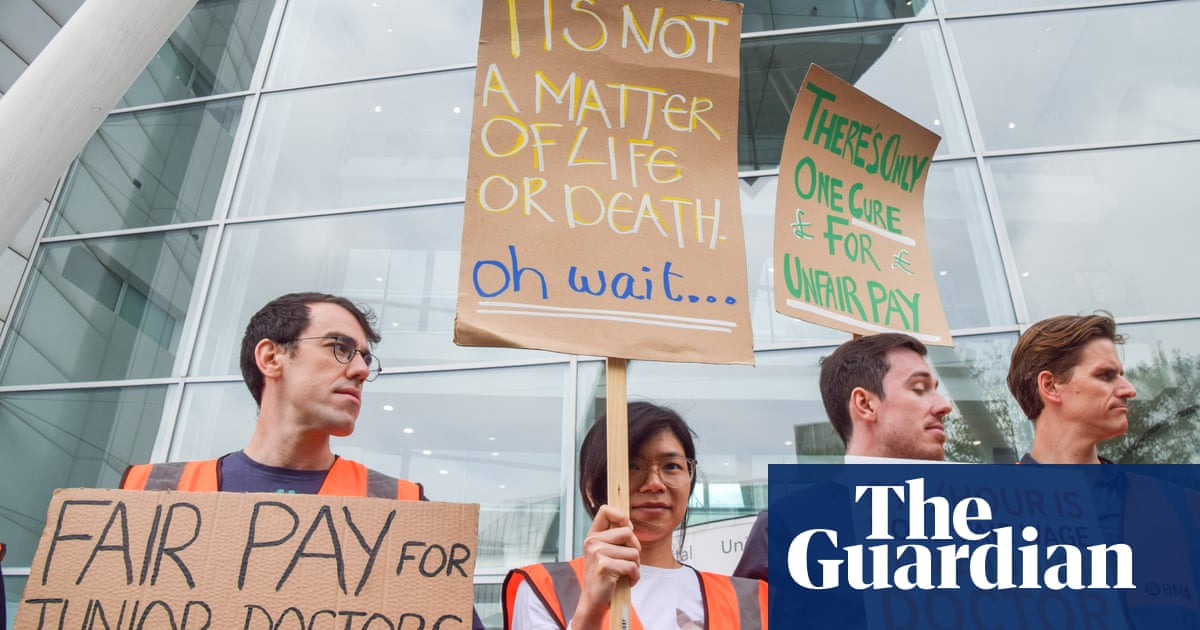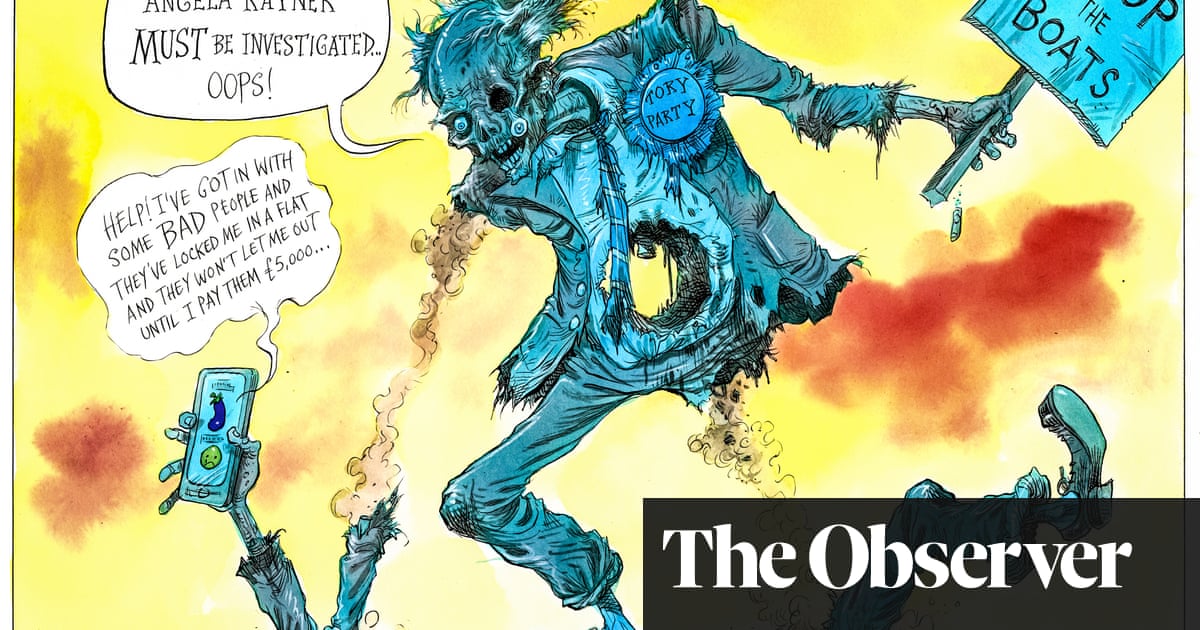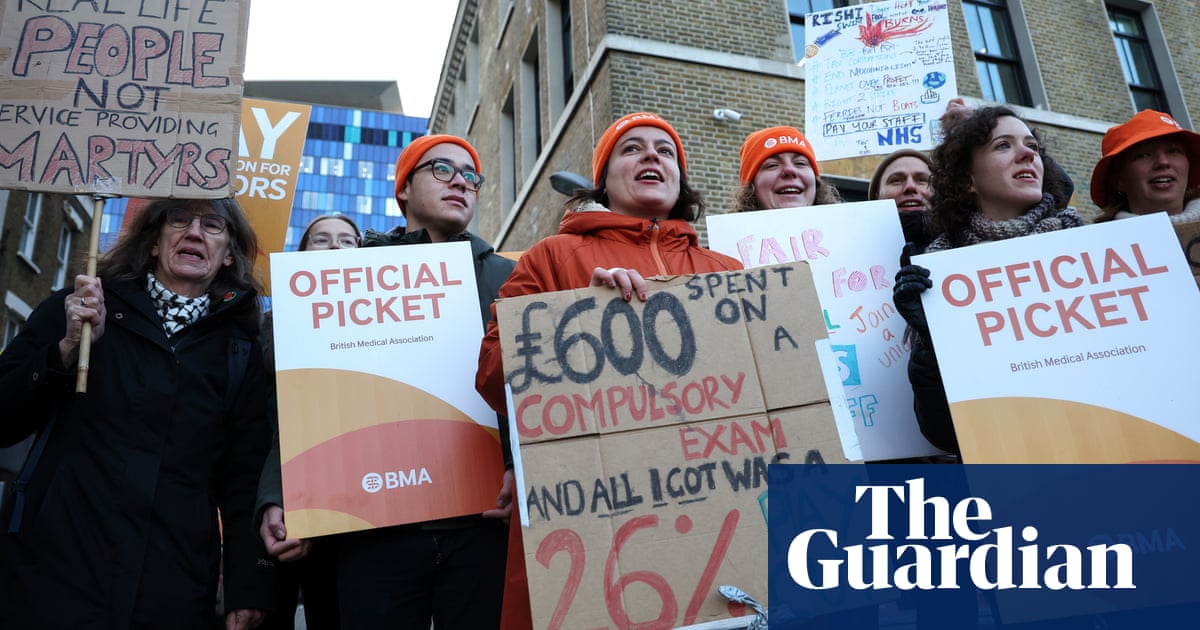
The longest junior doctors’ strike in NHS history means tens of thousands of patients in England have had their care cancelled or rescheduled since last Wednesday.
The strike centres on a long-running pay dispute between the British Medical Association (BMA) and the government. The latest walkout, the tenth since March 2023, ends at 7am on Tuesday.
The BMA has been pushing for junior doctors to get a 35% pay rise, which it says would restore their earnings after inflation to 2008 levels. Ministers say that is unaffordable.
Here, doctors, patients and public sector workers share what they think of the unprecedented strike action.
A non-striking NHS worker
“I support the strikes. I’ve seen for myself how swamped a doctor’s shift can get on a daily basis. They are often held responsible if something goes wrong, and deserve a pay rise for what they do and for the dedication and effort it takes to work in an underfunded, overloaded system that has been brought to its knees.
“My workload doubled when I was working in A&E during the previous strikes, but we were all sticking together and everyone felt motivated to pick up extra shifts. A lot of our consultants are supporting the strikes. I don’t think the pay of doctors is where the government should be saving money.”
Sasha, 24, a trainee psychological wellbeing practitioner in a London hospital
A striking junior doctor
“I’m in dual training in intensive care and emergency medicine, the longest training pathway, and remain frozen at the ‘middle grade’ registrar’s wage since 2018 – which is now £38,000 annually, for at least the next two years. With two children in nursery and a mortgage I spend my spare time doing locum shifts trying to make ends meet. My parents in Ireland constantly remind me how much higher my salary would be at home. The stresses on doctors with young families – many of us – are immense.
“It’s morally galling to walk out of A&E at peak winter surge when patients need us, but the system is falling apart. We need our doctors to have a reasonable standard of living and we need to retain staff. We are all so demoralised and under strain, and financial constraints are a massive part of that.
“I have faith in my consultant colleagues and contingency planning to keep patients safe.”
An anonymous junior doctor in their late 30s from the south-east
A vulnerable patient with safety concerns
“I am disgusted with this strike. Everyone is worse off than they were, and junior doctors are no different. I understand that their wages haven’t kept up with inflation, but we’ve all got to take this hit in this general economic situation. They have a good offer. I’m enraged they want so much. We can’t keep manufacturing money.
“I’ve been very grateful for the help that I’ve had from the NHS. I’ve had colon cancer and a quadruple [heart] bypass, and I’m still here. I’m not sure I’d get the same treatment if something happened to me tomorrow. Having a heart condition, it is very worrying that there may not be help if I get a heart attack. The junior doctors should put vulnerable patients first and they’re not. I think they’re being selfish. Everyone has to play their part.”
Paul Cheale, 85, a retired meat wholesaler from Brentwood
A patient directly affected by the strike
“I have metastatic prostate cancer, which needs constant support. Sometimes I need emergency treatment. The doctors strike could affect me at any time as I am in their hands, but I support it 100%. It can’t be helped, strikes always have a negative effect on people’s lives. It shows how important the work is. What could be happening to people is really bad, but it would be worse if people stopped becoming doctors or more doctors moved abroad.
“I have concerns that the government are being purposely obstructive because it’s their ideology that they want to see NHS patients move over to private health plans.”
Dave, 70, from Rainhill, Merseyside
A senior doctor, anti-strike
“I think the strikes are militant and dangerous, both the junior doctor and the consultant strikes. There is no doubt in my mind that this action will cause considerable harm to patients. The timing, length and lack of derogations makes me question whether this is a breach of the GMC’s [General Medical Council] good medical practice guidance.
“Patients have taken a huge hit by Covid in terms of waiting lists, and I don’t think it’s acceptable to put more pressure on the system for a pay rise at the moment.
“Doctors are well paid. We have enviable pensions, job security and, until recently, public respect. Who has ever got a 35% pay rise in the public sector? Asking for this much in this economic climate is ridiculous and makes doctors look greedy and naive. Many doctors are vehemently opposed to the strikes.
“I think doctors primarily want better working conditions, and paying them more isn’t going to help. I routinely work 14- or 15-hour shifts now without a break because I have to take on admin work. There’s only a certain amount of money and if you give so much of it to doctors, you only frustrate other lower paid NHS workers who should be there to let doctors do what they trained for. You just rob Peter to pay Paul.”
Jane, a hospital consultant from Sheffield
A senior doctor, pro-strike
“I was a junior doctor until last year. I graduated in 2009, and wasn’t particularly well paid then, but could afford bills and the odd meal out. 35% sounds a lot, but it all depends on the context.
“Today, junior doctors are earning around 30% less in real terms than I did, for a job which is overall more difficult now than it was back then, when the system was much better funded and less busy. They also average £80-100k debt leaving university, with fees having tripled since I qualified, and living costs are higher. It’s difficult because a lot of public sector workers are in a similar position, but ultimately the job is hard and there aren’t enough juniors – time to pay them at least what I was worth 15 years ago.
“I’ll work a couple of extra nights this week, and haven’t seen unsafe levels of care. But it’s a busy time of year, and I do worry about waiting times going up because of this strike.”
Andy, a 40-year-old consultant cardiologist
A public sector worker
“I support striking but I don’t support a 35% request as a basis for continued dangerous action. As a teacher I completely understand pay erosion. I have sisters who are nurses and midwives and they have also experienced it. Junior doctors know that they’ll soon be on track for a very lucrative career. Holding on to 35% is making it impossible to end these strikes. If nurses and teachers can accept lower pay than they were looking for, then these doctors should.
“I’m concerned about the effect on waiting times and, crucially, cancer care, and about the strain this is putting on nurses. I can’t support such a hardline standoff. I think they are losing the support of the public with this strike. 20% would be a good starting point and would still far outweigh the pay rises that the rest of us public servants had to endure.”
An anonymous 50-year-old teacher from Cambridge




